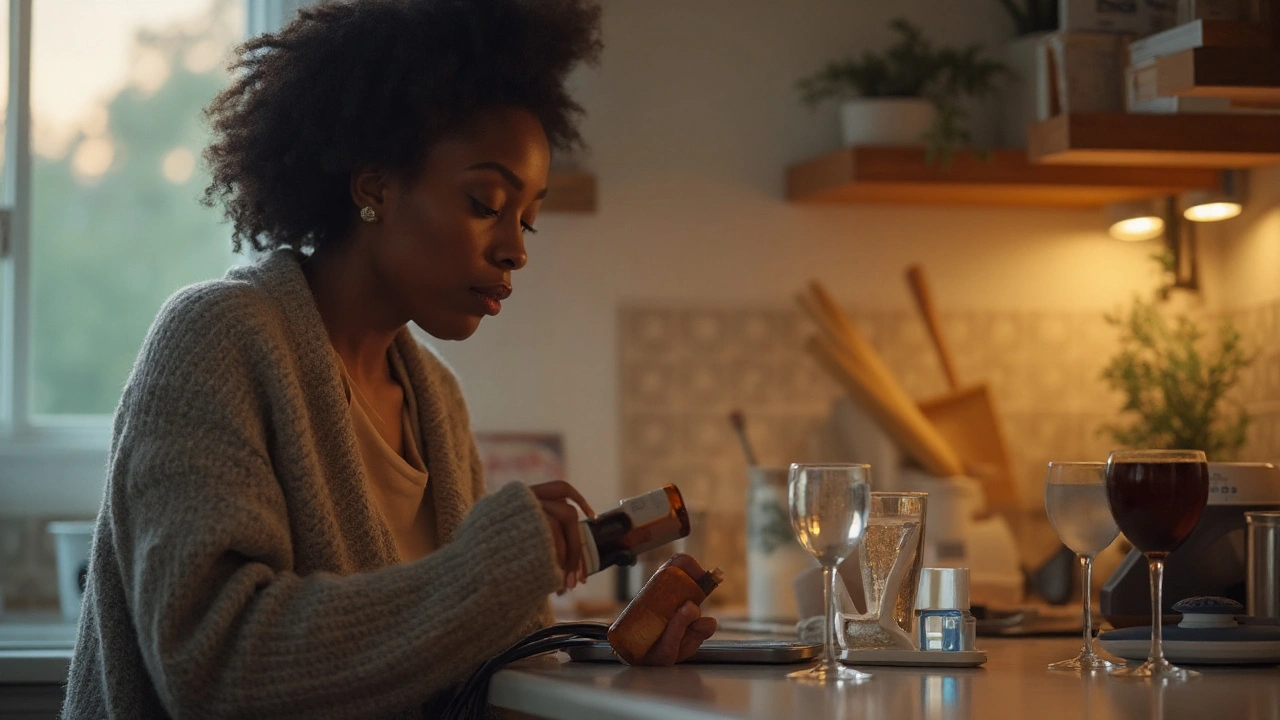Can You Drink While Taking Amlodipine? What You Need to Know
If you’ve been prescribed amlodipine for high blood pressure or chest pain, you’re probably wondering whether it’s okay to have a drink now and then. The short answer is: occasional moderate drinking is usually fine, but you need to understand how alcohol can change the way amlodipine works and what side‑effects might pop up.
How Amlodipine Works
Amlodipine belongs to a group called calcium‑channel blockers. It relaxes the smooth muscle in your blood‑vessel walls, which helps lower blood pressure and reduces the heart’s workload. Because it slowly releases the drug over time, it keeps your blood pressure steady throughout the day.
When you take amlodipine, you’re already counting on a stable blood‑pressure level. Anything that suddenly dilates blood vessels or drops pressure can make you feel dizzy, light‑headed, or even faint. That’s where alcohol comes into play.
Alcohol Interaction Risks
Alcohol is a vasodilator – it widens blood vessels, too. If you mix a strong drink with amlodipine, the combined effect can cause a bigger drop in blood pressure than you expect. Common symptoms include flushing, dizziness, and a rapid heartbeat. For most people, a single glass of wine or a light beer isn’t a big problem, but binge drinking or heavy daily use can amplify these effects.
Another thing to watch is the side‑effect profile. Amlodipine can cause swelling in the ankles, a flushed feeling, or headache. Alcohol can make those symptoms worse. If you already notice swelling or a pounding head, it’s wise to skip the booze until you talk to your doctor.
Lastly, alcohol can interfere with how well you stick to your medication schedule. After a night out, you might forget a dose or take it at the wrong time, which can destabilize your blood‑pressure control.
In short, moderate drinking (up to one standard drink per day for women and up to two for men) is generally considered safe, but you should always monitor how you feel. If you notice dizziness, fainting, or a sudden spike in blood pressure, stop drinking and call your healthcare provider.
Here are a few practical tips to keep things steady:
- Limit yourself to one drink and see how your body reacts.
- Never take amlodipine on an empty stomach before heavy drinking.
- Stay hydrated with water; alcohol can dehydrate you and affect blood pressure.
- Keep a medication diary – note the time you take amlodipine and any drinks you have.
- If you have a history of heart disease, talk to your doctor before mixing anything.
Every person’s tolerance is different, so the safest route is to ask your doctor directly. They can factor in your overall health, other meds, and lifestyle to give you a personalized answer.
Remember, the goal of amlodipine is to protect your heart and vessels. A little enjoyment is fine as long as you stay aware of the signs and keep the intake moderate. Stay safe, stay informed, and enjoy life without putting your health at risk.

Amlodipine and Alcohol: Safe Drinking Guide, Risks, and UK Tips
Aug, 24 2025Can you drink on amlodipine? Learn how alcohol affects blood pressure meds, what’s safe, UK unit tips, red flags, and real-life scenarios to avoid dizziness and risks.
READ MORE